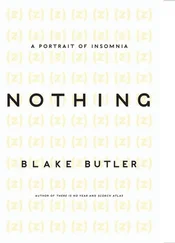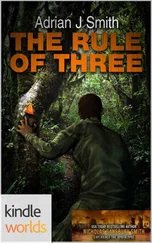Sometimes, in the windows of the buildings, somehow becoming clear across great leagues of distance, he feels certain he can see behind the panes inside the small light. And within that light pockets of remote people moving inside rooms; living bodies warbling in muffled silence without even pulse, the word there also buried in the liquid formed around him, rising at his head, today.
With his chest tight, wanting new breath, knowing he should turn away and swim to surface, Flood feels his eye pass through one specific window across the stretch of cheek of a lone woman in a gray dress; a woman alone, standing at the window staring back up at him; a woman who looks in some way like his mother, then like his wife. Her face changes with each expression as Flood swims up and back to look longer, each time more winded than the last, the woman at the glass there standing stolid and looking up into him from so far in and down they shouldn’t be able to see anything of one another. Behind her in the room the light continues changing, fleshing out the endless wet between them with ambient clouds of mottled color.
There is a terror in her eyes, some kind of churning screen of remove in her complexion, but also a desperation for the ability to grant respite, a want to forgive, to cave in to the worst part of anything he has been, could be; some soft understanding coming open in her with his returning presence, as if, in her tiny world, through all the darkened liquid, she could feel him, need him.
Unlike the bodies in the past houses, Flood knows he knows her name; knows who she was and would have always been beside him if he could have let her. But then just as quickly he must rise; kick in frenzy back up through the water to fill his lungs enough to swim back down, each time returning to a smaller and deeper expression of the image of the woman, of the window, of the city, among which he knows for sure now she is held forever there and he is not, his body screaming against the pressure to stay under longer, lower, until on some future iteration, there is nothing.
Among the long blank hours of the tapes of Gravey, an image emerges.
It is difficult at first to decipher the dimensions of the contour from the flat white after all these hours burned upon the viewer’s face. There are floors, then there are walls. The outline of a room there, then a room there. The room itself is mostly white as well, though by method of slow accumulation an underlying texture in the surface rises. One sees rise among the air the form of furniture, and hair; hair, yes, attached to limbs of bodies attached to people in a space, the aging heads of humans, their vertices of assembled flesh emerged in neon connection from the first suggestion of their presence, then as well: persons, objects, a window, light.
As quickly then as anyone could remember, the image continues on as if it had always been a film of just this room, as if all the hours of the white had never been.
The time code on the tape’s playtime, at the instance of the image, resets on the machine to 00:00:00.
In the film, the people sit in silence holding postures that only slowly and occasionally adjust: one man holding a book with no word written on its spine or face sits on a sofa, beside which a woman stands at a window with her back turned to the viewer. On the floor, before a TV, a small child grips a toy camera, the rim around its lens gnawed up. From this angle we cannot see the content of what is being watched by the family this evening, though its color fills the room.
Each body is mostly still. Small adjustments occasionally occur, like inhalation, the book’s page turn, the movement of a limb, as if to remind us the shot’s not static. The space inside the room is calm. Any noise is subtle and mostly covered over by the larger sound of nothing, like the feeling one gets when passed by something larger than one would wish to be near.
A floor-length mirror stands along the far wall, copying the room. The reflection shows no filming camera in the frame, despite the fact that at this angle, the camera should, by proximity, appear. This glitch in continuity suggests some alteration of the record, an outside guidance.
On further inspection it becomes apparent there is something off or wrong or different about the child’s reflection. Such as, in the skin of the face of the skin of him there in the mirror appear patches of discolor like the scape of glimmer in gasoline splayed under sun, while his unreflected skin is creamy. The hair around the lips and ears of the child in certain reflected angles appears to be thicker than what actually appears on the child’s head. He looks older than he should.
What is wrong with the reflection of the child?
What about he here must be different from he there?
No one seems to notice, or else they have accepted his condition as a fact of life.
All is calm.
The woman at the window stands seeing out with her face near the glass, breathing against it. The changing light of the TV in the room makes it impossible for us to see what she is looking out at; only the room again appears reflected, doubled, extending the room out into the night. We cannot see from here where the reflection in the window meets the reflection in the mirror. The woman’s hands are clasped before her, her hair pulled back tightly around her skull.
The man turns a page again. The page’s turning makes no sound, though on this page, open before him, still unseen by the camera eye, the man seems to see something unexpected; his face changes, clenching; he brings his head down toward the page; he seems to be reading or looking in whatever way at whatever is there more carefully now, taking the words slow, as if to parse it clearer. The color of his face changes. He looks up suddenly toward the viewer, out of the film, though it is unclear what he sees there. Suddenly he is pouring sweat, visibly spewing and misting in the TV light. He stares as if transfixed in horror with the viewer, while beside him the woman and child go on exactly as they have been.
The toy camera in the child’s hands is blue. The camera is leaking something. There is a wet mess on the floor and on his clothes and in his hair a little. The way the child cajoles the machine, bats and shakes it, hugs it hard with the lens aimed into his chest, causes the machine to take pictures of the world without the guidance of a human eye, filling up its electronic memory.
The viewer can’t stop looking at the child. The child looks so much like how the viewer remembers looking as a child, however long ago that was. The hour seems familiar. The color of the hour.
With this realization, another man steps into the screen. He seems to move in from somewhere just behind the lens, where a camera would be. The viewer views at first only his shoulders, then his whole back, his arms and waistline. He is naked. His hair is grown down to his ass. His skin is wrinkled, leathery, sopping wet. His body pours water from his fingers, from his hair slick, from his arms; it seems to gather on the floor inside the image, pooling up in the room over the carpet rising.
The man has no reflection.
The man moves forward in the image until he is standing at the center of the room. The array of light around him has come bright white, from the TV or the window or both or neither. The man with the book is shaking now, as are the edges of the house, only slight enough to make the walls seem blurry, ruining the mirror. The shaking causes the wet to come out of him faster; he is crying, sweating, then begins bleeding from the eyes. His crotch is wet as are his pores. He can’t seem to do anything but sit as he had been before, holding the book, frozen wide-eyed. The child and the woman are also sweating, though they don’t seem to notice; they do not react at all to the man.
Читать дальше












